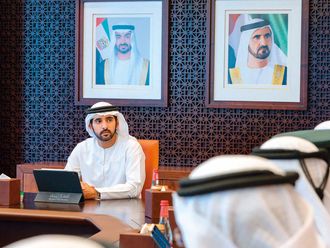Dubai: A National Health Survey that was announced by the Ministry of Health and Prevention in October 2017 is concluding by March-end where researchers appointed by the ministry are in final phase of health data collection.
A group of 150 researchers have been going door to door conducting health check-ups and taking blood samples as March 29 marks the conclusion of the six-month National Health Survey campaign by the Ministry of Health and Prevention.
Mona Saeed Ahmad, one of the researchers from the Ministry of Health and Prevention, who was part of the team that conducted door-to-door tests told Gulf News: “We are collecting blood samples for measuring important health parameters such as blood sugar, HbA1c levels, triglycerides and also taking blood pressure and other important health parameters from members of families selected by a randomiser. We are collecting data from three members of each selected family.”
She added the age groups they were covering were children below five years, adults above 18, women in the family and elders above the age of 60.
The National Health Survey, endorsed by the World Health Organisation (WHO), the Dubai Health Authority and other Federal Health agencies in the UAE by the end of the six month period will have collected important health parameters from 30,000 people — three from each family of a total of 10,000 families. About 40 per cent of these families selected randomly were Emirati and 60 per cent expatriates.
Health indicators
The health data collected will be collated and analysed in line with the goals of the National Health Agenda and Sustainable Development Goals 2030 and will be used in formulating future health strategies.
Alya Zeid Harbi, director of the UAE’s Statistics and Research Centre told Gulf News: “The survey is based on a large body of comprehensive and exhaustive health indicators. Our researchers are in the process of making personal visits to families. The members of the survey team have been issued identity cards for residents to be able to identify them.
She added that once the survey ended all data would be analysed. “Once we have all the data by the second quarter of 2018, we will clean, validate and analyse the data and create health indicators as per WHO standards. We will by the end of 2018 provide this data to the relevant health authorities for strategy and policy development.”












